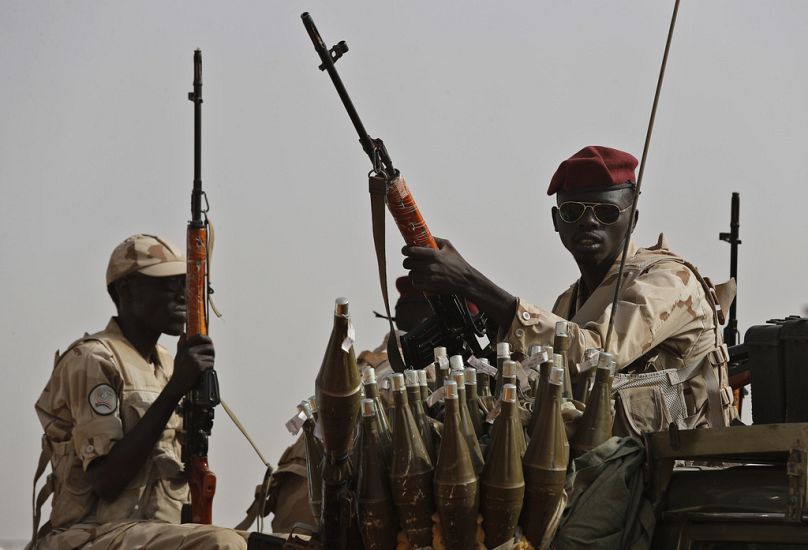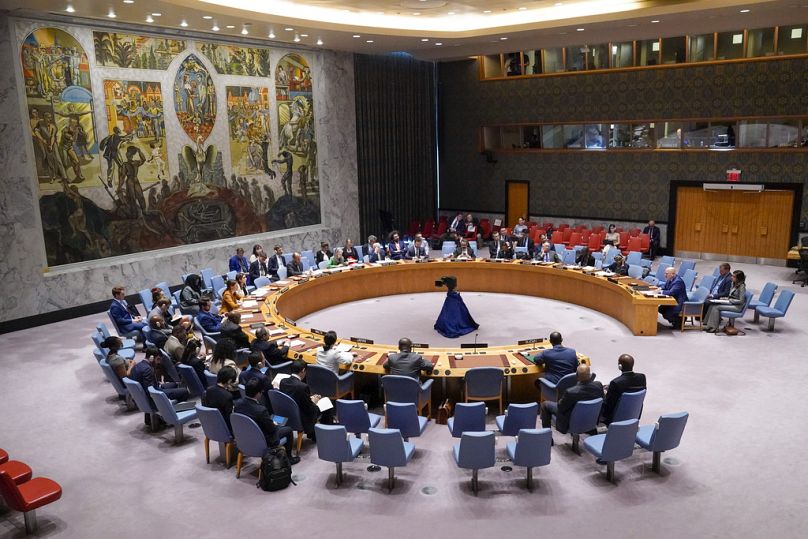Turkey's Baykar allegedly violated EU and US sanctions by sending arms to Sudan's military, fueling the civil war, according to a Washington Post report.
One of Turkey’s largest defence companies has been linked to Sudan's nearly two-year-old war after a report showed a series of arms shipments to the Horn of Africa nation in what could be a clear violation of EU and US-led sanctions on Khartoum.
In a report published by the Washington Post, Baykar, a leading defence exporter and supplier of drones, was accused of sending a cache of weapons and ammunition to the Sudanese army between August and November last year.
According to the Washington Post, the first weapons, part of a €110.7 million ($120m) contract between Baykar and the Sudanese military’s procurement agency, Defense Industries System (DIS), landed by plane in August at Port Sudan, a Red Sea city on Sudan's eastern coastline.
However, messages the Post said it authenticated showed that the last flights arrived on 15 September and more followed in October and November. The report said the arms deal, signed by Mirghani Idris Suleiman, the director-general of Sudan's DIS, was dated 16 November 2023, five months after the US imposed sanctions.
Turkish Bayraktar drones in Khartoum
The contract included six TB2 drones, three ground control stations, and 600 warheads. It stated that 48 employees were to deliver them, and an offer to provide "in-country technical support" was included.
Sudanese officials allegedly informed Baykar representatives during a meeting on 9 September that "Turkey had become the country that has supported them the most," according to an internal Baykar memo that the US media outlet said detailed the discussions.
Turkish-made Bayraktar drones began to attract more international attention following their use by Ukraine's military to destroy Russia's armoured vehicles and artillery systems.
Last year, Baykar said it had contracts with around 30 countries for its TB2 drones, while Turkey's procurement and defence-industrial policy agency, the Secretariat of Defence Industries (SSB), said its defence and aerospace exports in 2024 had reached nearly €7 billion, a 29% rise from the year before.
Is the conflict turning into a proxy battle?
The allegation of arms shipments to Sudan casts Turkey among the foreign powers vying for spoils in the 22-month-long deadly war that has seen other international actors, such as the United Arab Emirates (UAE) and Russia, accused of playing different roles and fueling the conflict.
In November, rights group Amnesty International said Sudan's paramilitary forces (RSF) were using armoured vehicles made by the UAE and equipped with French military technology in the civil war.
The International Court of Justice on Thursday said that Sudan had filed a complaint against the UAE for allegedly breaching its responsibilities under the Genocide Convention by supporting the paramilitary Rapid Support Forces (RSF). UAE officials have always denied involvement in the conflict.
Last month, Russia struck an agreement to create a naval station in Port Sudan, another important foothold along the Red Sea, according to a statement signed by the foreign ministers of Moscow and Khartoum.
Despite extending an arms embargo on Sudan in October with a unanimous vote, the UN Security Council has not attempted to take action against any of the foreign nations allegedly violating the embargo.
The war in Sudan broke out in April 2023 after a power struggle ensued between the army head Abdel Fattah al-Burhan and Mohamed Hamdan Dagalo, his former deputy who led the rival paramilitary Rapid Support Forces.
The fighting, mostly in Khartoum, the capital, and the Darfur region, has also sparked deadly ethnic clashes across the country.
The United Nations regards the Sudan civil war as the world’s worst humanitarian catastrophe, with as many as 14 million people displaced and starvation spreading to several areas of the nation.
Estimates of the dead from the war have varied between 20,000 and 150,000.













